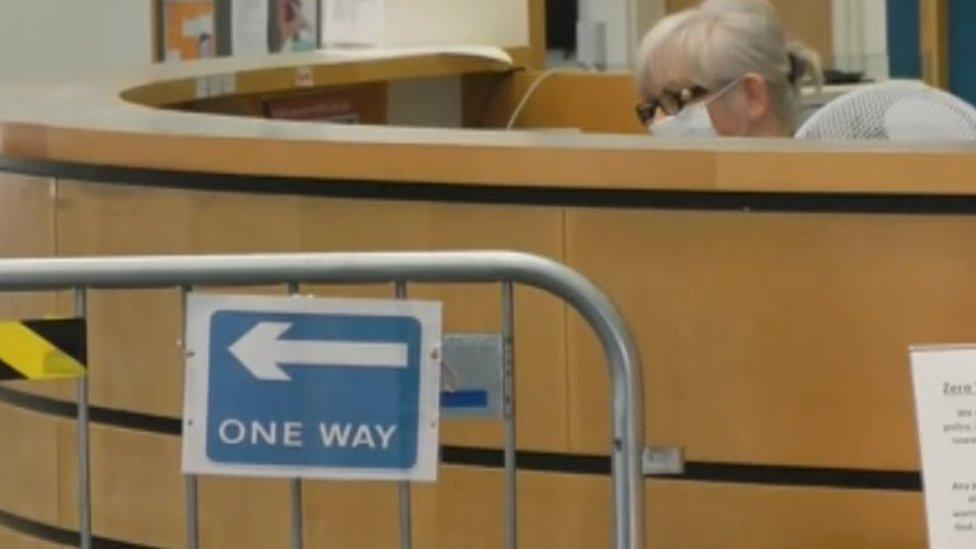Coronavirus: How are other Welsh health services coping?
- Published
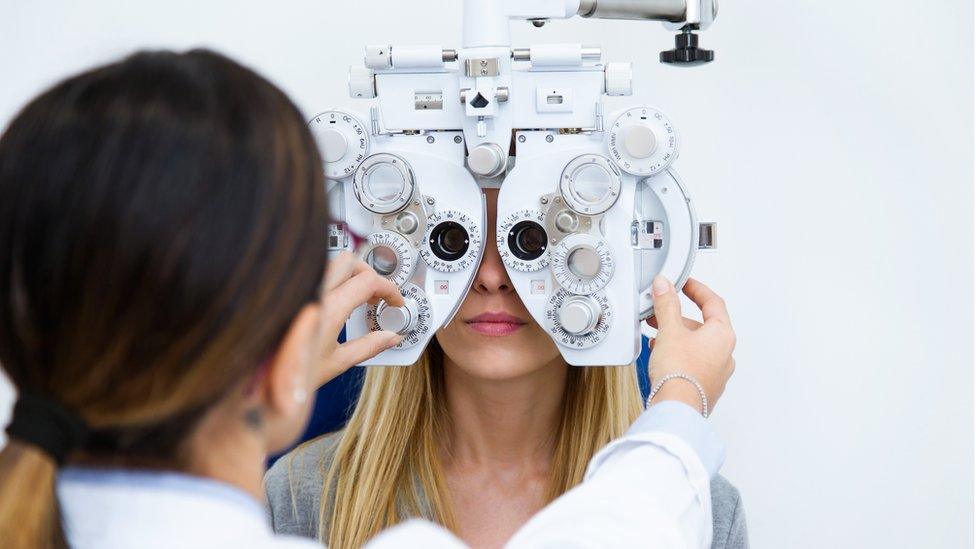
Optometrists work in close proximity to patients during treatment
Coronavirus has created "challenging times" for health workers treating people for other conditions, doctors have said.
New rules have been introduced to curb the spread of the virus and ease pressure on NHS resources.
But specialised health care, such as sexual health and optometry, often relies on face-to-face treatment and is still needed during social distancing.
More assessments will be made over the phone before anyone is seen in person.
Limiting face-to-face consultations
Dr Olwen Williams, the past president of the British Association of Sexual Health and HIV (Bashh), who is based at the Betsi Cadwaladr health board in north Wales, said the coronavirus pandemic has been "challenging and interesting".
She said: "All the clinics across Wales have closed their doors to walk-in patients. Everything has been switched to a telephone service.
"What happens is you get assessed in line with who you need to speak to, whether it's a nurse or a doctor, who will do a full assessment. If it's significant, the patient would be asked to attend a clinic by appointment."
"The idea being is we have done the consultations on the telephone so you're limiting the time spent face-to-face with a doctor or nurse. We have tried to limit the amount of people coming to the hospital site," she added.
"We're trying to make things as accessible as possible to the majority of people, and when someone says 'I have got a genital ulcer or growth', how do you assess them without bringing them in?"

Walk-in sexual health clinics, such as the one at the Cardiff Royal Infirmary, have been closed
Dr Williams added the health board is continuing to see HIV patients, as well as those taking post-exposure prophylaxis (PEP).
Despite the restrictions on movement, she said "we know people will still meet up", but warned it could be "dangerous" to do so.
Meanwhile, home abortions in Wales will be allowed during the pandemic.
Broken glasses
Optometry practices in Wales have closed for routine appointments, but about half are still open to treat emergencies.
The Welsh Government said it has provided "an initial cash flow adjustment for all practices for three months", with additional payments for those remaining open to provide urgent and emergency eye care.
Sali Davis, the chief executive of Optometry Wales, said this is not the case across the rest of the UK.
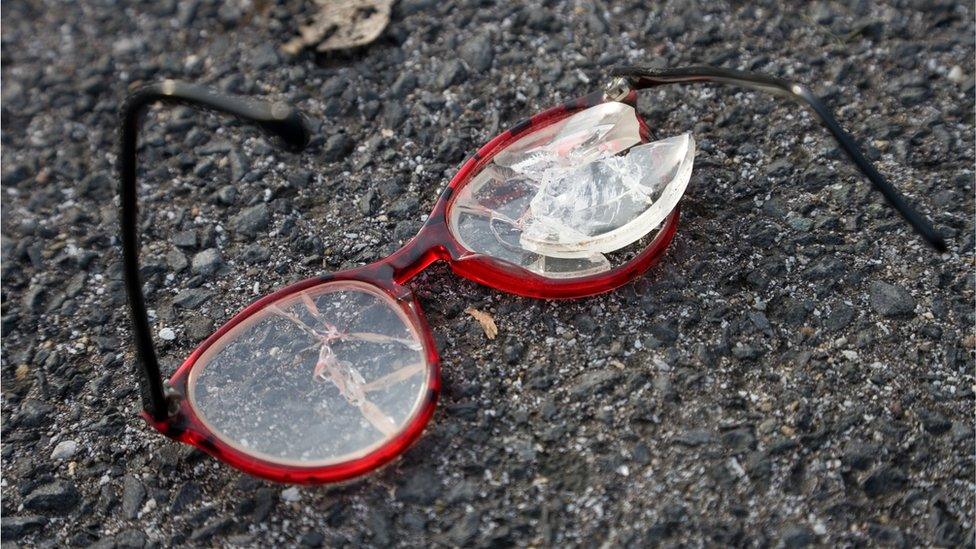
Broken glasses are seen as an emergency and can be replaced by optometrists
"The other devolved countries have not been offered that package, so [optometry practices] can't afford their rent," she said.
"The Welsh Government expects 50% of practices to close and the other half will remain open to treat emergencies," she added.
Ms Davis said emergencies can include people getting splinters in their eyes, a sudden or unexplained loss in vision, or people losing or breaking their glasses and needing replacements. Each branch generally treats four emergencies every day.
But she added routine outpatient appointments have been cancelled, as well secondary care for surgery, such as cataracts, which could lead to some with sight-threatening conditions "going blind at home".
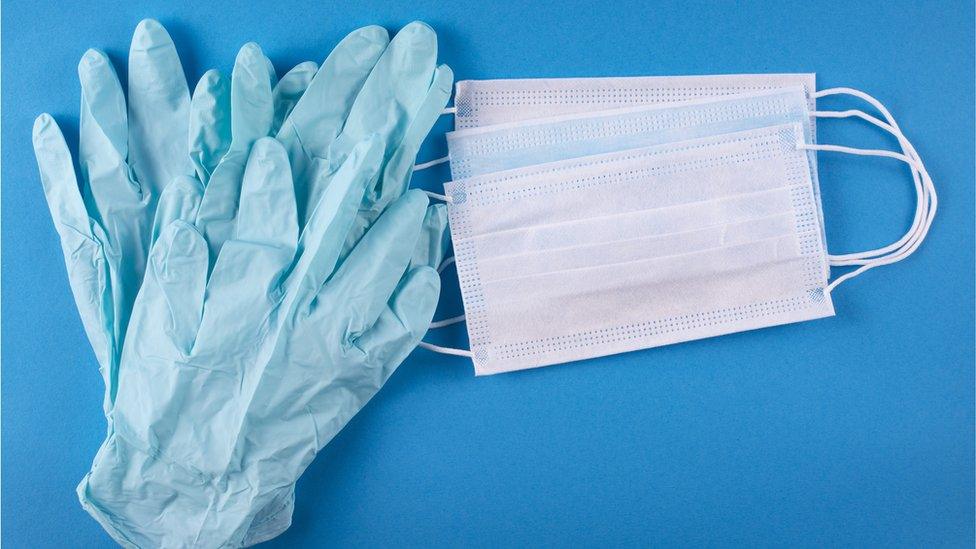
PPE is to be made available to optometrists
She also said there were concerns among optometrists about the proximity to patients during treatment, and an initial lack of personal protective (PPE) available to them.
It followed concerns from dental care, with the Welsh general dental practice committee saying members are facing "horribly difficult ethical dilemmas" because there is not enough PPE to keep workers safe.
New guidance on PPE, external, agreed by the UK's four chief medical officers, was published on Thursday.

A SIMPLE GUIDE: What are the symptoms?
NEW GUIDANCE: What must I do?
NEW RESTRICTIONS: What are they?
LOOK-UP TOOL: Check cases in your area
MAPS AND CHARTS: Visual guide to the outbreak

Other health services
The British Association of Chiropodists and Podiatrists, external has said practitioners are still insured to treat patients as long as they, or someone in their household, are not self-isolating with Covid-19 symptoms.
But it said podiatrists "must exercise the highest clinical judgement before a decision is taken to provide treatment" and the need for treatment must meet a "high bar", considering if a failure to treat will lead to hospital treatment, or puts patients at greater risk than coronavirus would.
Meanwhile, all face-to-face physiotherapy which is deemed non-essential has stopped, the Chartered Society of Physiotherapists , externalhas said.
It added face-to-face consultations can be used if people are in hospital and require physiotherapy, if there is a serious risk of deterioration of a condition and whether they have urgent rehabilitation needs.
There are other occasions, such as if people are in hospital and require physiotherapy where face-to-face treatment can be given, but otherwise, physiotherapists are advised to conduct remote consultations.
The British Association for Counselling and Psychotherapy (BACP), external has advised members not to see clients face-to-face where possible.
It has also advised therapists to consider whether telephone or online counselling may be possible.
- Published1 April 2020

- Published1 April 2020
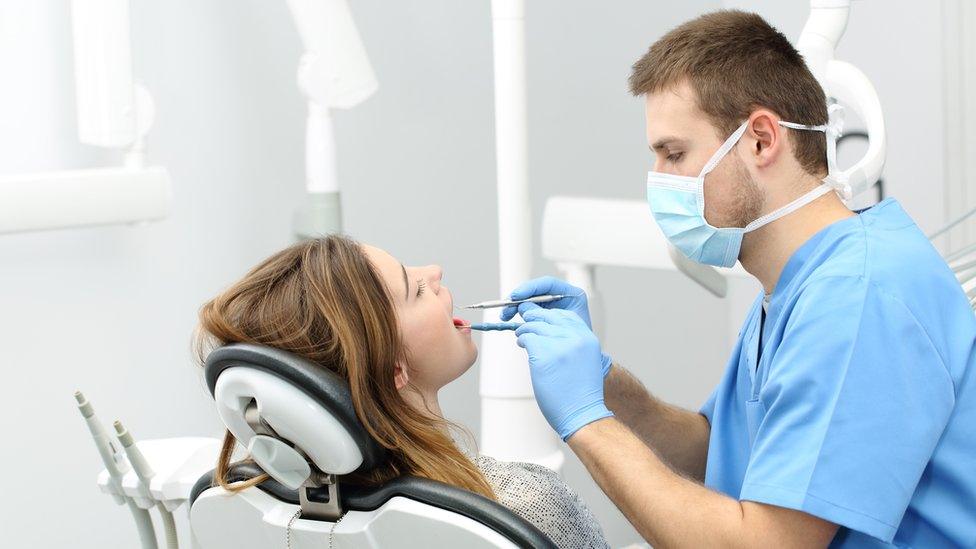
- Published1 April 2020
